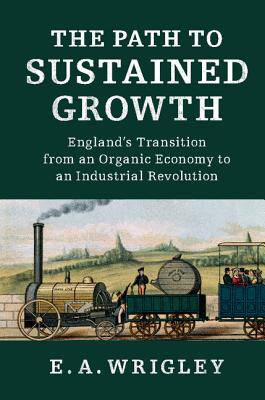
- Afhalen na 1 uur in een winkel met voorraad
- Gratis thuislevering in België vanaf € 30
- Ruim aanbod met 7 miljoen producten
- Afhalen na 1 uur in een winkel met voorraad
- Gratis thuislevering in België vanaf € 30
- Ruim aanbod met 7 miljoen producten
Zoeken
The Path to Sustained Growth
England's Transition from an Organic Economy to an Industrial Revolution
E A Wrigley
Paperback | Engels
€ 43,45
+ 86 punten
Uitvoering
Omschrijving
Before the industrial revolution prolonged economic growth was unachievable. All economies were organic, dependent on plant photosynthesis to provide food, raw materials, and energy. This was true both of heat energy, derived from burning wood, and mechanical energy provided chiefly by human and animal muscle. The flow of energy from the sun captured by plant photosynthesis was the basis of all production and consumption. Britain began to escape the old restrictions by making increasing use of the vast stock of energy contained in coal measures, initially as a source of heat energy but eventually also of mechanical energy, thus making possible the industrial revolution. In this concise and accessible account of change between the reigns of Elizabeth I and Victoria, Wrigley describes how during this period Britain moved from the economic periphery of Europe to becoming briefly the world's leading economy, forging a path rapidly emulated by its competitors.
Specificaties
Betrokkenen
- Auteur(s):
- Uitgeverij:
Inhoud
- Aantal bladzijden:
- 227
- Taal:
- Engels
Eigenschappen
- Productcode (EAN):
- 9781316504284
- Verschijningsdatum:
- 21/01/2016
- Uitvoering:
- Paperback
- Formaat:
- Trade paperback (VS)
- Afmetingen:
- 153 mm x 231 mm
- Gewicht:
- 322 g

Alleen bij Standaard Boekhandel
+ 86 punten op je klantenkaart van Standaard Boekhandel
Beoordelingen
We publiceren alleen reviews die voldoen aan de voorwaarden voor reviews. Bekijk onze voorwaarden voor reviews.











